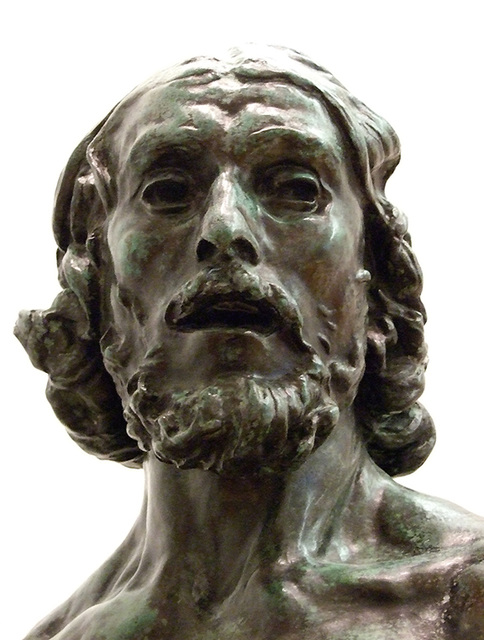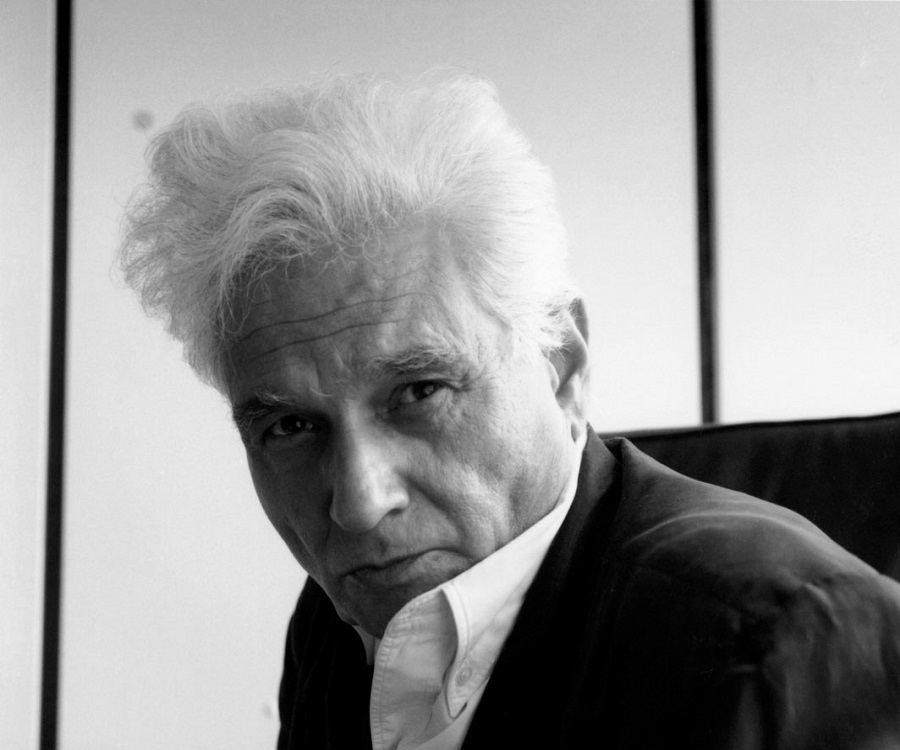The following is the second of a three-part series. The first can be found here. It will appear as a full article in the Fall 2021 issue of the Journal for Cultural and Religious Theory.
This attitude of living redeemed cannot be reduced to an inward or outward existence but rather occupies the space in between and is bound with the commitment to a cursed person. We can describe this stance of living as Christian Irony. This Christian irony, therefore, neither gets lost in seriouslessness nor fundamentalisms. It presents itself as a gesture of avoiding violence but does not hide away from the world’s violence.[1]
This ironic attitude not only questions social divisions without destroying them in a gesture of violence; it also approaches time under a different paradigm. With regard to the Messianic time as the time of eschatological completion, Giorgio Agamben turns in particular to the Pauline ὡς μὴ (1 Cor 7:29–32), the ‘as if’ or ‘as though.’ Messianic time proves to be a process of transition at the end of time, which is neither (pending) expectation nor (closed, fixed) completion and thus cannot be translated into binary logic:
“The Pauline hōs mē seems to be a special type of tensor, for it does not push a concept’s semantic field toward that of another concept. Instead, it sets it against itself in the form of the as not: weeping as not weeping. The messianic tension thus does not tend toward an elsewhere, nor does it exhaust itself in the indifference between one thing and its opposite. The apostle does not say: ‘weeping as rejoicing’ nor ‘weeping as (meaning =) not weeping,’ but ‘weeping as not weeping.’”[2]
It is the messianic subject that is released from supposed certainty through its vocation (klēsis). The subject’s perspective is shaped by a new openness, which is no longer marked by power struggle, autonomy through secular knowledge, and the standstill of social conditions. This subject instead puts the supposed validity into question in relation to the intrusive event of Jesus Christ.[3] Through the perspective of hōs mē the messianic vocation to be a disciple of turns the faithful into an ironist, which is why Martin Heidegger also describes this change of perspective following Paul as a new fundamental stance:
“The relational sense is not changed, and still less the content. Thus: the Christian does not step out of this world. If one is called as slave, he should not at all fall into the tendency (to suppose) that something could be won for his Being in the increase of his freedom … It is a matter of indifference in which surrounding-worldly significance he stands. The slave as Christian is free from all bonds, but the free one as Christian becomes a slave before God. (The γενέσθαι is a δου- λεύειν before God.) These directions of sense which refer to the surrounding world, to one’s vocation, and to that which one is (self-world) determine in no way the facticity of the Christian. Nonetheless they are there, they will be maintained and first authentically assigned (zugeeignet) there. T
he significances of the surrounding world become, through having-been, temporal possessions. The sense of facticity determines itself in this direction as temporality. Until now, the relational sense of the surrounding world and communal world was purely negatively determined. Insofar as these relations have no possibility at all to motivate the arch-ontic meaning of primordial Christian religiosity, the positive question arises regarding the relation of the Christian to the surrounding world and the communal world.”[4]
Theological Use of Irony
Following Paul’s understanding of truth and existence, we can elaborate on irony as a reflexive stance, which aims at overly simplified understanding or inflexible knowledge, in order to re-fluidify interpretations of phenomena and to keep them open to a wider horizon.[5] Thus, irony also prevents that a person would fall into fideism, because irony entails a reflexive stance that permanently questions authority and interpretations for a greater insight into truth without cancelling the concept of truth in general.
Passing this notion of irony onto the current time, it is still possible for the faithful to maintain a loyal relation to authoritative traditions and to be ironist. The faithful ironist adheres to the legitimacy of the doctrinal statements in general, but she is aware that the doctrinal statements and the revelation of God are not identical.[6] Words cannot capture the being of God in an absolute manner; therefore, the ironist can question the authoritative tradition for gaining greater insight into the truth.
For this reason, the ironist occupies an intermediate place, whose statement is neither to be understood as a (static) oath nor as an (always false) lie. Also, her gesture of questioning does not eliminate the meaning of a statement. In a Socratic way, the ironist is aware of her inferior position in terms of knowledge, even while she questions the supposed evidence of other positions:
“In reality, irony is a false falsehood, a lie that destroys itself (as a lie) when used. It puts the lost ones back on track; it is the disentanglement of the entangled ones; or rather more, it provides the instruments for this disentanglement. … irony does not want to be believed in – it wants to be comprehended. In other words, ‘interpreted’. Irony makes us not believe in its words, but in its meaning.”[7]
To clarify the use of irony further for a hermeneutical purpose, we can stress the relationship between conceptualizing in words and the perceived reality in epistemological matters. Because language is itself contingent and fragile, it is not possible to translate the perceived reality into an identical definition that would always be true and valid. Thus, on the meta-level of philosophical (and theological) theory formation, a binary categorization between right and wrong meaning proves to be misleading. This stems from the multitude of meanings a phrase can have in different times and contexts.
A simple word will always surpass – epistemologically speaking – a single definition because of its surplus of meaning; a single word as signifier can point to a multitude of signified aspects. In other words, the contextual dependence of a word makes clinical objectivity impossible.[8] Therefore, irony offers itself as both an existential and hermeneutical instrument to open one’s own horizon, in order to cope with wavering meaning without having to rely on the categories of true/false or real/inexistent.[9]
Given that an interpretation is never dispensable, it is up to a subject to do the interpretative work because worldly phenomena are neither evident nor do they carry their own interpretation. Phenomena appear in an equivocality that makes an interpretation absolutely necessary. Here, it also follows that an unambiguous interpretation is a self-contradiction because an interpretation only represents a subjective attempt to clarify the being of a thing. In order not to fall back on over-simplified arguments and thus to maintain an epistemic openness, it was a decisive concern of Socrates to question precipitate determinations in public. He wanted to be the midwife for his interlocutors in their search for truth:[10] He tried to help his interlocutors, as well as his students, to achieve intellectual liberation and freedom through his ironic inquiries, thus opening up intellectual freedom as a potential possibility for them.[11]
Socratic irony has a purifying function, but according to Kierkegaard, Socrates did not take responsibility for the life and thinking of his students. Since this new, negative freedom through irony came as a potential,it was up to each student to put this freedom into an actualization.In Kierkegaard, the relationship of Socrates to his students only took place in the realm of possibility or even only as a possibility (and thus not in concrete reality).[12] Because irony was not only a method for Socrates but rather his existential program, the ironic inquiry was not limited to a certain point of reality. Irony allowed Socrates to put knowledge itself into a question. For him, beauty, truth, and goodness were liminal concepts of knowledge, which themselves had only a virtual or somewhat hypothetical validity.[13]
Since knowledge will always lack an axiomatic point, actual knowledge was impossible for him and could only count as a possibility. Taken to the extreme, even death was meaningless for him, according to Kierkegaard. Socrates did not know death and did not gain any insight into death strictly speaking, so his negative freedom also came with the fearlessness of death. This existential irony of Socrates limits his life, according to Kierkegaard, to a radical point of the virtual present. [14] Despite this critical view on Socrates, Kierkegaard assigns Socrates a paradigmatic moment in human history that cannot be overestimated. With Socrates, subjectivity appeared for the first time, and since then, this ongoing questioning shaped human self-relationship as self-reflection.[15]
Kierkegaard was particularly concerned with the danger of falling into pure negativity through the principal stance of infinite questioning through irony. By questioning everything in an unleashed manner, irony tends to collapse into a destructive form of nihilism. Kierkegaard opposes a form of irony that has only an end in itself and thus gets lost in excess of negativity because irony must be purposive. Relying on Kierkegaard, we can no longer call this actual irony, but only cynicism:
“Here, then, we have irony as the infinite absolute negativity. It is negativity, because it only negates; it is infinite, because it does not negate this or that phenomenon; it is absolute, because that by virtue of which it negates is a higher something that still is not. The irony establishes nothing, because that which is to be established lies behind it.”[16]
Instead of getting lost in the infinite movement of pure negativity, as Kierkegaard repeatedly criticizes Schlegel, Fichte, and Solger in particular,[17] Kierkegaard opts for controlled irony that is secured by an existential anchor.[18] To pursue an ironical existence, this anchor of meaning and orientation needs to occupy an axiomatic point that cannot be questioned or ironized. This axiom spares the ironist from falling into the abyss of endless negativity and, at the same time, serves as an excellent way to locate her own existence.
Concerning this controlled irony, Liesbet Samyn raises the question of whether such a form of irony can still count as irony and whether this irony is still a philosophical method at all, or whether it represents a unique form of religiousness.[19] Without agreeing principally with Samyn’s concern and without dismissing irony from the realm of philosophy, the axiomatic center of meaning is indeed an object of faith, strictly speaking.
From a psychoanalytical point of view, Jacques Lacan states the necessity for human language[20] to have a center of meaning that cannot be deconstructed. This axiomatic center prevents human language from falling into the meaninglessness and insignificance of a fragile, endless chain of signifiers: this is the Name-of-the-Father (le nom-du-pere).[21] If we connect Lacan and Kierkegaard, it is possible to state that the Name-of-the-Father cannot be ironized. Thus, the Name-of-the-Father prevents human reflexivity from falling into the excess of infinite negativity that sees Kierkegaard given in the Romantic ironists. Only through this center of anchoring all subsequent meaning, it is possible to interpret the world and its phenomena, to speak of them, and to keep these attempts of interpretation ironically open.
Continuing the before stated, we can elaborate a form of ironic theology and a theology of irony. We see, following Paul, how it is possible to argue for the avoidance and denunciation of binary categorizations. This gesture of refusal makes Paul appear as an exemplary representative of controlled irony in the sense of Kierkegaard.
Foucault and Agamben – of Truth and Truth-Speaking
Before going over to the field of truth and truth-speaking, we have to frame our approach by pointing to the matters of epistemology and hermeneutics. Considering these topics is crucial because, as mentioned above, the relation between language and perceived reality is precarious and does not yield to an objective notion of neutral perception. This relation becomes clearer when we acknowledge that phenomena, as observable things, appear without any explanation and their interpretation. Due to the necessity of a subjective interpreter to recognize a phenomenon as appearing, it is epistemologically impossible that phenomena could end with one single interpretation.
Since every appearance of a phenomenon in the perceptive field of a person comes with at least a minimal deviation on account of different hermeneutical preconditions, this equally means that interpretations of a phenomenon can differ without contradicting each other. If, however, an interpreter considers his or her interpretation as the only possible one, this stance entails a binary scheme with an enormous dynamic of exclusion. True is contrary to false, good to evil, ill to healthy, and sane to insane. This binary scheme remains not limited to the intellectual sphere; its consequences go further. At the same time, these consequences impact daily life, insofar as whatever is considered wrong or illogical is excluded and silenced. Such interpretative patterns of binary conceptions generate mechanisms of exclusion within society, as Michel Foucault illustrated in the field of clinical insanity.[22]
If we continue this scheme of binary exclusions into the topic of truth, significant findings become manifest. The prominent theories of truth (theory of adequation, coherence, and consensus) attempt to determine via asymptotic approximations of something true to the truth.[23] It is the attempt of drawing near to bridge the gap between something as true and truth as a horizon. However, the interpretation (as intellectual perception and understanding) of a phenomenon in the binary categories of true and false must not be mistaken with truth itself; since these interpretations (in the plural!) of phenomena on the ontic level are something completely different than truth as the horizon of all being the ontological level. As Heidegger puts it, it is the confusion of correctness and truth.[24] In other words, truth exceeds the total sum of all phenomena interpreted as true.[25] In the case of an asymptotic approach of equating propositions and this enabling horizon, this very idea is instead a category mistake.[26]
However, the decisive and thus much more serious problem is not the relationship of particular true propositions and their relation to truth. The much more weighty issue here concerns the human conditions of cognition. While a pre-critical philosophy still assumed unhindered and objective access of humans to reality, the critical studies of Immanuel Kant (especially Critique of Pure Reason) could show that this unbiased access never existed. Rather, human perception is bound to a subjective perspective and thus has no neutral access to the phenomena in his world horizon. An appearing phenomenon does not show itself in a neutral way to the perceiving person but is always already framed and shaped by perspectivity. Therefore, perception always stands beyond a supposed neutrality. For humans, there is no thing in itself, which is why, in return, human perspectivity is an a priori, epistemological basic condition.[27]
Instead of separating subject and object through supposed neutrality, it is necessary to emphasize the relationality within the act of perception:[28] Through contingency, subjective perception means that there is no timeless, neutral, and unbiased access to reality. This brings a perceiving person always to have a specific place where perception happens and propositions are made:
Strictly speaking, perspective is the condition of the possibility of truth. For a ‘view from nowhere,’ there is no truth, because nothing can be seen, understood, and judged as wrong. So, where falsehood does not only not exist factually, but cannot exist at all, there is no need for truth. Only under the conditions of contingency and perspectivity, truth matters. Only then, a person needs it, and only there, it does exist. Because only where it is possibly or actually endangered, there is a dispute about truth. And without this, there is no truth.[29]
Instead of trying to separate truth and perspectivity by a phantasm of neutrality and objectivity, both aspects mutually depend on each other. Thus, only from a subjective perspective, truth is recognizable. That is why also the Subject, in the sense of Badiou and Žižek, only comes into being by decidedly taking responsibility towards truth.[30] To elaborate his take on becoming a subject, Žižek cites Paul as a believer in Christ.[31] Accordingly, we can state that Paul’s interpretation of Jesus Christ as the risen from the dead cannot happen neutrally. This very belief in Jesus Christ involves the whole person of Paul existentially because faith in Christ counts here as an axiom.
This faith in Christ does not remain on a merely intellectual level; it needs to come into practice. Perception, recognition, and understanding of truth carry existential weight for the Subject who cannot stay unchanged. The acknowledged truth must also be applied (in the sense of hermeneutical application).[32] This is the reason why the Subject who knows about truth as a life-changing matter must remain faithful to it.[33] The truth event, like the resurrection of Christ, comes as a vocation that does not approach a person as a neutral object, but rather calls for taking responsibility and acting correspondingly.[34]
To outline a conception of truth that is aware of the possible category mistake and the epistemological conditions, and that takes into account the hermeneutical significance of subjectivity, the following can be said: Truth provides and is the universal origin (in Heidegger’s sense of Ursprung) of interpretation.[35] Truth further calls for responsibility so that subjective interpretations and the respective actions can gain existential weight and stand out to be evaluated.
The conception of truth as the possibility for interpretation may sound weak and inappropriate for this existential matter. However, including the topic of justice to the matter of truth, the demand for responsibility makes sense. If a person is conscious about the in-deconstructable idea of justice and also knows about its relevance concerning his or her actions and their consequences,[36] truth becomes an obligation that, because of its universal scope, also includes justice.
The individual is in commitment towards truth – he or she does not possess it, but being aware of this obligation, it is the only possibility to classify and interpret phenomena, and subsequently, to relate these interpretations to truth. In other words, truth is enabling for any interpretation by being a non-destructible anchor. In consequence, truth also appears as the horizon of responsibility, before which a Subject receives existential weight and the value of its actions matter. Such a conception of truth is neither cold nor abstract, but it raises awareness for individual responsibility.
Florian Klug is a faculty member in the Department of Dogmatics at the University of Würzburg in Germany. He is a former visiting scholar at Villanova University. He is the author of The Fragility of Language and the Encounter with God: On the Contingency and Legitimacy of Doctrine (Fortress Press, 2021) and Der Versöhnte Blick und die Gabe des Anderen (Brill, 2019).
[1] See Vladimir Jankélévitch, L’ironie (Paris: Flammarion 1964), 181.
[2] Agamben, Time, 24.
[3] See Agamben, Time, 43.
[4] Martin Heidegger, The Phenomenology of Religious Life (Bloomington, IN: IUP 2010), 85. N.B. The passage, that the slave should remain a slave, is omitted here, because of its misuse in previous times. It is possible to reconstruct its historical circumstances; however, for an approach in constructive theology, it is better to step aside from this very passage and focus on the part of the stance of emancipation within the Church.
[5] See Jankélévitch, L’ironie, 58.
[6] Karl Rahner, “What is a dogmatic statement?,” in Theological Investigations: Later Writings, Vol. V, trans. Karl-H. Kruger (Baltimore: Helicon, 1966), 58.
[7] Jankelevitch, L’ironie, 60.
[8] See Jacques Derrida, Writing and Difference, trans. Alan Bass (London: Routledge 1978), 87–89.
[9] This does not mean, however, that these categories have become fully useless for discursive work in science or scholarship. They remain significant and useful, but the hermeneutic necessity will stay to transcend rigid definitions.
[10] See Jankélévitch, L’ironie, 12.
[11] Sören Kierkegaard, The Concept of Irony: With continual Reference to Socrates, ed. and trans. Howard V. Hong and Edna H. Hong (Princeton: PUP 1989), 191.
[12] See Kierkegaard, Concept, 192.
[13] See Kierkegaard, Concept, 196–197.
[14] See Kierkegaard, Concept, 196, 214–215.
[15] See Kierkegaard, Concept, 242.
[16] Kierkegaard, Concept, 261. Irony must not be an end in itself; quite the opposite, irony in its controlled mode is much more a means to establish subjective orientation within the world. See also Kierkegaard, Concept, 326-328. See further Jankélévitch, L‘ironie, 153.
[17] See Kierkegaard, Concept, 272–285. Kierkegaard addresses Socrates very critically about only having negative freedom. However, Kierkegaard does not explicitly see him on the same level of lost reality as the romantic ironists.
[18] See Kierkegaard, Concept, 327–328.
[19] See Liesbet Samyn, “How to Cure Despair. On Irony and the Unhappy Consciousness,” in Kierkegaard Studies Yearbook 2009: Kierkegaard’s Concept of irony, ed. Niels Jørn Cappelørn, Herman Deuser, and Brian K. Söderquist (Berlin: De Gruyter 2009), 317–351 at 345–348.
[20] This necessity is equally valid for the complete human conceptual horizon.
[21] See Jacques Lacan, Écrits: The First Complete Edition in English, trans. Bruce Fink (New York: W.W. Norton & Company 2006), 481-482. Lacan sees as the founding principle for humans living together and communicating the Name-of-the-Father. The Name-of-the-Father thereby becomes, through the murder of the real father who was the former bearer of the law, the foundation of the symbolic-legitimate order – the Name-of-the-Father (as an empty signifier) is the law itself. See also Florian Klug, Sprache, Geist und Dogma: Über den Einbruch Gottes in die Wirklichkeit des Menschen und dessen sprachliche Aufarbeitung (Paderborn: Schöningh 2016), 49–50.
[22] See Michel Foucault, Histoire de le folie à l’âge classique (Paris: Gallimard 1972), 41-125. See also Derrida, Writing and Difference, 41–47.
[23] See Heidegger, Pathmarks, 138. See also Klaus Müller, Jürgen Werbick, ‟Wahrheit. II. Philosophie- und theologiegeschichtlich,” in Lexikon für Theologie und Kirche, vol. 10, ed. Walter Kasper et al., 3rd ed (Freiburg: Herder 2006), 929–933 at 929–930.
[24] See Heidegger, Pathmarks, 138: “think truth as correctness [Richtigkeit].”
[25] See Aristotle: Metaphysics, 1041b.
[26] See Heidegger, Pathmarks, 141–142.
[27] See Immanuel Kant, Critique of Pure Reason, transl. and ed. Paul Guyer and Allen W. Wood (Cambridge: CUP 1998), 177–179 (A28–33/B 44–48).
[28] Slavoj Žižek, The Parallax View (Cambridge: MIT 2006), 17, 224-225. See also Slavoj Žižek, The Ticklish Subject: The Absent Center of Political Ontology (London: Verso 1999), 32–33.
[29] Ingolf U. Dalferth and Philipp Stoellger, ‟Perspektive und Wahrheit. Einleitende Hinweise auf eine klärungsbedürftige Problemgeschichte,” in Wahrheit in Perspektiven: Probleme einer offenen Konstellation, ed. Ingolf U. Dalferth and Philipp Stoellger, Religion in Philosophy and Theology 14 (Tübingen: Mohr 2004), 1–28 at 13.
[30] See Alain Badiou, Being and Event, trans. Oliver Feltham (London: Continuum 2006), 195–197. See also Žižek, Ticklish Subject, 141–144.
[31] See Žižek, Ticklish Subject, 145–151.
[32] See John D. Caputo, Hermeneutics: Facts and Interpretation in the Age of Information (London: Pelican 2018), 101. 112, 310.
[33] See Alain Badiou, Ethics: An Essay on the Understanding of Evil, trans. Peter Hallward (London: Verso 2001), 67–71.
[34] See Badiou, Saint Paul, 90–92. See also Badiou, Being and Event, 396–400.
[35] See Martin Heidegger, Off the Beaten Track, trans. and ed. by Julian Young and Kenneth Haynes (Cambridge: CUP 2002), 46–49.
[36] It is Jacques Derrida himself as the theorist of deconstruction who identifies justice as indeconstructible and considers every single person as individually responsible through the call of justice. See Jacques Derrida, Force de loi: Le ‚Fondement mystique de l’autorité’ (Paris: éditions Galilée 1994), 35. See also Caputo, Hermeneutics, 205.




